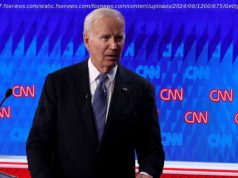Wednesday’s display of kissing up in Washington has many critics questioning the nature of sycophancy, but many of us share the president’s desire for praise.
“Something this profound could not have been done without exquisite presidential leadership,” House Speaker Paul Ryan said.
“We are going to make this the greatest presidency we have seen, not only in generations but maybe ever,” said Sen. Orrin Hatch, whose praise and hopes included all present.
“You’ve spurred an optimism in this country that’s setting records,” Vice President Mike Pence said.
Not surprisingly, critics heard these accolades as the purest form of sycophancy — insincere flattery — bestowed by a team of “yes men.”
Ramani Durvasula, a professor of psychology at California State University, Los Angeles, said politicians may be the most obvious players in the game of “currying favor,” but all of us are living in a world of “chronic attention-seeking,” she said.
Enabling technology
“We’ve created systems through technology, through social media — even through the chronic ability to stay in touch through texting and all of that — so people almost chronically are needing to be fed,” Durvasula said.
Praise and overpraise are the food we seek, and we get it online. We share or comment on posts we don’t really like as a matter of “interpersonal laziness,” Durvasula said, but more often because we’re hoping for a gain — just like politicians.
Publicly, we may seem “like a connected and responsive friend,” but really we are just hitting “like” at a red light or in a grocery line, Durvasula said. Or we’re playing the reciprocity game: You like mine, I’ll like yours.
Brad J. Bushman, a professor of communication and psychology at The Ohio State University, said some people may even be addicted to self-esteem and praise.
“We’ve done some research showing some people would rather have a boost in self-esteem than get money or eat their favorite food or see their favorite friends,” Bushman said. “They just can’t stop seeking praise. It has this addictive quality.”
Durvasula agreed: “The population as a whole is getting more and more accustomed to getting praise. The data is kind of suggesting that, by and large, social media has been a huge driver of this.”
“Back in the day, if you wanted praise, you kind of had to do something valuable,” she said. Today, we live in a reality where people we’ve never even met can bestow compliments from afar — thousands of miles away, in some cases. We’re getting more praise, so we want more praise.
Praise becomes “a little bit like a drug,” Durvasula said. “You’re getting more of it, so we want more of it. Everybody likes praise, but when you can’t get through your day without it, that’s when it’s a problem.”
That’s when you stray into the territory of narcissism, she said. Narcissists need a tremendous amount of validation, almost like they don’t exist unless they are being praised or validated.
Bushman said that “narcissism is a personality disorder in the extreme form and it’s also just a trait in the normal population. Some people are very high in narcissism and some people are very low in narcissism.” It follows a bell-shaped curve, he said, with most of us falling in the middle.
On the flip side, Durvasula explained, the sycophants who feed narcissists with overpraise “tend to devalue themselves or overvalue power and proximity or both.” They are willing to be obsequious in order to get themselves — or their platform — to the end, Durvasula said.
“Ironically, the other word for this is ‘politic,’ ” she said.
A public ‘show’
Sycophancy — and narcissism — are threads running through the political system, Durvasula said. “I don’t care if you’re a liberal, a conservative, a Democrat, a Republican or a libertarian — it doesn’t matter,” she said. “If you think of what the democratic process is — you need to win the most votes — it’s an entire system based on praise and validation.
“Politicians have become sort of our strange post-modern celebrities, in a way. We’re expecting them to put on a show,” she said. They have to be validated to get into office and remain in office, so they are by nature validation-seekers.
In the past, validation used to be a vote, but today, “it’s every politician scrambling to be most in the public eye,” Durvasula said. Trump, as president, has set the tone, and now “all the other members of Congress are seeking that same level of praise and validation.” It’s a constant popularity contest.
Matthew Martin, a professor of communications studies at West Virginia University, said that politicians are more visible than ever today. With more time in the spotlight, they may be more subject to criticism and so need to be told by their inner circle that they are doing well and making a difference and that people like them.
When it comes to sycophancy, “it’s not like the source is always evil or thinking about his or her own self-interest,” said Martin. For example, in his work examining coaching skills, he and his colleagues found that a “good coach is aware that some players might be so sensitive that they need praise even when they deserve a lot more critical analysis or criticism.”
“They’re not being manipulative as much as trying to achieve a good goal by doing it,” he said. This is an “effective communicator.”






